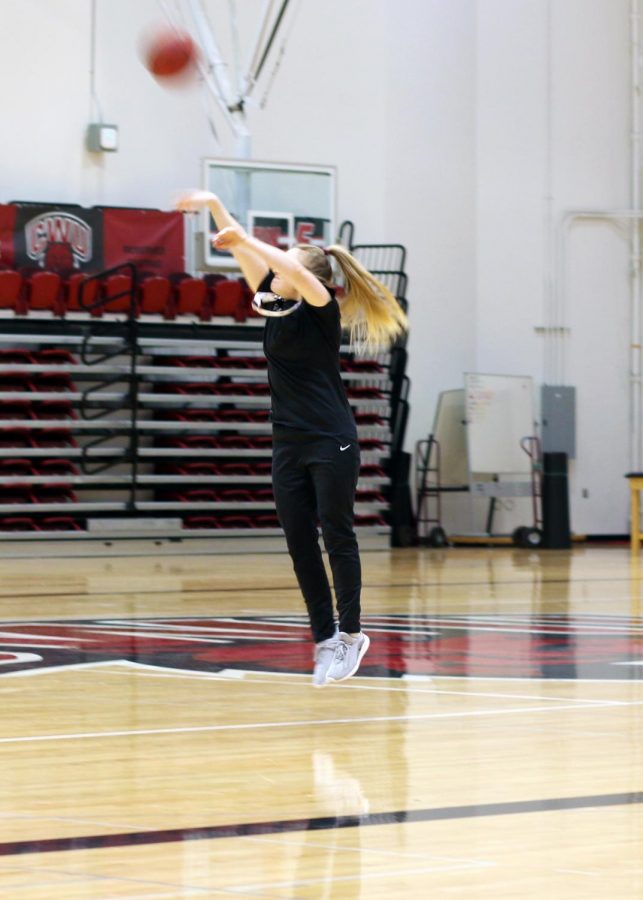Unique philosophies: finding success as a head coach
Women’s basketball coach Randi Richardson-Thornley shoots hoops with her players prior to practice starting. Richardson-Thornley maintains great relationships with her players as can be seen at practices and games with her constant encouragement and motivation.
February 14, 2019
Most of us grew up playing team sports, or have dabbled with the thought of joining a team. Behind every great team, there is usually an even greater coach calling the shots and helping push their team to its max potential. Most fans see the finished product on game day, but what happens behind the scenes? Different athletes adapt differently to new coaching styles, and new coaching styles have paid off for coaches in the past. Over time, coaching styles have changed dramatically. Treatment of players has changed as well in the last 20 years. CWU is filled with different coaches from all walks of life and they all have unique ways of getting the job done.
Todd Thornley, head coach of CWU men’s rugby, was hired for the job in July of 2016 and still has a lot to learn. In Thornley’s third year of coaching the Wildcats, he has found strong success, taking his overall coaching record at CWU to 31-14.
“Communication is a big part of how I coach,” Thornley said. “If my players are doing something wrong and they don’t know what they are doing wrong then how can they fix it?”
Good communication seems to be something many coaches have adopted as a key way to improve their teams. There has been a debate for years between the old and new-school styles of coaching. When old-school coaching is brought up, most people think of the punish-first and converse-later mindset. New-school coaching adopts the idea that communicating with players and teaching them the best ways to play is better. Brandon Rinta is the head coach of CWU men’s basketball and when it comes to coaching, he feels it is not about him, but more about the team as a whole.
“The way I coach is that I make sure it’s about the players, and the sacrifices and relationships we have as a team,” Rinta said.
Coaches find ways to build on the way they lead a team based on the lessons they learn from past coaches and players. In a nutshell, coaching is about trial and error. Rinta believes he learned a lot from coach Dean Nicholson who is the winningest coach in CWU basketball history. Coach Nicholson won over 500 games at CWU, had his number retired and was eventually inducted into the CWU hall of fame in 2017 as a result of his success. A lot of the success behind Nicholson’s career came from his ability to coach for so long.
Head coach Desi Storey of CWU baseball knows the feeling of coaching for a very long time. Storey is going on his 28th year as head coach at CWU. Storey also spent five years as an assistant coach at CWU and played his collegiate career at Centralia Community College and CWU. Most would agree that a coach has to do something right to be named the head coach for so many years.
“I’d like to say I’m pretty calm and somewhat of a teacher of the game,” Storey said. “No need to yell. If a guy isn’t getting the job done, then simply get someone who can.”



